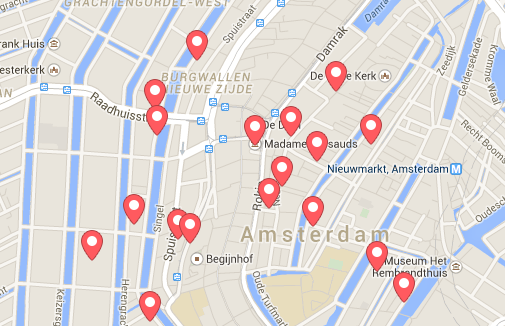Amsterdam Airbnb hosts are in a grey area after court ruling


People renting their homes to tourists via platforms like Airbnb will operate in a grey area until new national legislation comes into force this summer, legal experts say.
On Wednesday, the Council of State said that it is illegal to rent out property to tourists without a permit because landlords are effectively removing a home from the national housing stock.
The ruling, which was unexpected, has provided a boost to people campaigning against holiday rental platforms, and Amsterdam alderman Laurens Ivens said it is an important step in the city’s battling against the explosive growth in holiday rentals.
In formal terms, the ruling means everyone who rents out property to tourists without a permit is breaking the law. However, no local authorities have actually set up a licencing system to rent to tourists.
Lawyers are divided about what people should do now. Victor Oranje of WS Advocaten, told the Volkskrant landlords should apply for permit anyway, so they are covered if councils start implementing the new law. By contrast, Jim Friedrich of Quest Advocaten suggests people wait and see what happens next.
However, others warn that the situation would be further complicated if neighbours complain to the city that houses are being illegally let because councils would then be forced to act.
Fine
The Council of State ruling was made in the case of a woman who was appealing against a €6,000 fine from Amsterdam city council for failing to register the fact she was letting her property to American tourists.
The fine was ruled illegal, because she had been fined on the wrong grounds. Instead, the court said, she should have been fined for breaking housing law, which is subject to a fine of €20,500 – triple the other charge.
Lawyers now say that other people fined for not meeting Amsterdam’s bylaws would be able to fight that in court, on the basis of the Council of State ruling.
New legislation
The grey area, however, is only set to last until the summer, when the government aims to bring in new legislation covering holiday lets. Those national rules will allow local authorities to require holiday lets to be included on a register in areas where housing is in short supply.
That registration number must then be included in adverts on platforms such as Airbnb.
But the platforms have made it clear already they will not force landlords to include the registration number, leading campaigners to say the legislation does not go far enough.
Acting housing minister Stientje van Veldhoven said at the end of last year websites like Airbnb cannot be forced to hand over information to councils for checking because it would go against EU guidelines which view holiday rental sites as information platforms.
‘More far reaching measures will require long-term lobbying in Brussels,’ she is quoted as saying by the NRC.
Airbnb said in a statement that it wants to work with governments to help hosts follow the rules. ‘Situations like this are confusing, which is why we have backed calls for an EU regulator for digital services,’ the company said. ‘This would provide a more clear, consistent and predictable process for setting rules and regulations in Europe.’
Thank you for donating to DutchNews.nl.
We could not provide the Dutch News service, and keep it free of charge, without the generous support of our readers. Your donations allow us to report on issues you tell us matter, and provide you with a summary of the most important Dutch news each day.
Make a donation